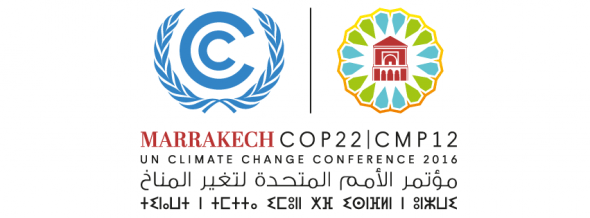
Agriculture was a key theme at the COP22 conference in Marrakech, for which the Alliance was awarded accreditation as an NGO observer organisation.
More than 2,000 delegates attended the conference over the two weeks. The Alliance was represented by Dr Chiyoge Sifa, regional director of the Alliance Africa office, and Fran McCree, policy and communications officer.
Over the week, Alliance delegates attended not only the official negotiations, but also side events of relevance to co-operatives. These side events covered topics such as rural electrification, increasing the resilience of those most vulnerable to the effects of climate change, and the path to staying below a 1.5° temperature change.
The Alliance also participated in the meetings of the Business and Industry NGO constituency and the Women and Gender constituency to learn how like-minded NGOs were interpreting the negotiations.
COP22 provided the Alliance with an important opportunity to focus on co-operative engagement in the implementation of the Paris Agreement and to network with policymakers and other social enterprises.
Following the conference, Dr Sifa was interviewed by Radio France International, a French public radio service. She talked about the Initiative for the Adaptation of African Agriculture, known as the Tripple A.
Launched at the COP22 conference, the initiative aims to reduce the vulnerability of Africa and its agriculture to climate change. Dr Sifa explained how producers had to adapt to a volatile environment and this required finance and time. “All activities contribute in a way or another to emissions, agriculture is no exception. We can have a more responsible agriculture, focused on improving soil management and agricultural water control,” she said, adding that using biologic fertilisers instead of chemical ones could also help.
“The Triple A initiative aims to address the vulnerability of Africa and its agriculture to climate change. The triple A reminds us of the great historic priorities of co-ops as well, particularly sustainability, which means food security and making sure Africa can continue to feed itself and put monitoring before financial results,” added Dr Sifa.




